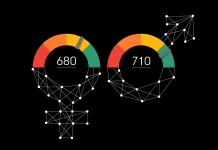Table of Contents
Introduction
For the internet to become a viable and valuable resource in society, companies that used it needed to create a secure and accessible way to send and receive money. As we know, today’s society makes internet transactions and payments so effortless that we don’t even have to think about it. We’re often provided with various options, all via our smartphone or mobile device. Still, some payment systems are easier to use than others, and depending on the type of transaction you make, it might be more beneficial to use one type over the other – so let’s take a look.
Gambling innovation – casino and sports betting
Gambling companies were among the first global institutions to collectively recognize and move their business models to a digital-first approach. All companies rely on a seamless and faultless payment method, and many of the most prominent names in the global gambling industry used considerable resources to ensure they perfected this element of their business. Multiple gambling companies now allow dozens of payment methods for their customers to use. You can connect your Apple Pay and PayPal profiles, use a range of buy now pay later companies, or use traditional online gambling methods such as credit card or wire transfer.
A smooth set of payment options can often be the critical reason bettors choose one type of gambling website over the other. There’s no shortage of options, and many offer a top service, so it’s these small nuances that can be the only difference. In addition to solid customer service, a strong set of reviews, a reputable name and a wide range of live bets to select from, the importance of having multiple, trustworthy payment methods is the bedrock of a successful gambling company. Few industries have the sort of range the gambling industry does, and the innovation that exists within it ensures that they don’t slow down, with cryptocurrency and other payment methods beginning to attract a new audience and further enhancing the security and seamless nature that reflect the reputability of the sector on the whole.
PayPal
Few companies have the reputation and respect that PayPal has obtained in the fintech sector. It was no secret how much of a goldmine lay in store for companies that could crack the code and provide a service where people could easily make purchases and sales to a global community of online customers.
After first rising to prominence due to the popularity of eBay in the early part of the noughties, PayPal now exists in over 200 countries and has a turnover of billions of dollars, easily making it one of the world’s biggest digital financial companies. Despite becoming a global player in digital finance over 20 years ago and maintaining its reputation as one of the easiest ways to send money to friends and online businesses, PayPal has had to shuffle along and watch other companies begin to take their slice of the pie, too. Apple Pay and other digital e-banking cards are now one of the most popular forms of payment, with cryptocurrencies also posing more of a threat to traditional systems.
Still, PayPal has brought innovations, encouraging small businesses to use them more easily. The company has also developed PayPal Credit, allowing retail customers a more straightforward way to buy products online and pay them off in monthly chunks. By using the same blueprint as a credit card or loan, PayPal hasn’t innovated too extensively, but by allowing the process to be more mobile-centric and streamlined, they’ve had a noted success.
Credit cards and digital wallets
Some analysts and media commentators believed that the everchanging online payment market would soon begin to threaten credit cards. Since the dawn of digital payments, credit cards have been the number one choice. Not only do banks offer guarantees such as Visa disputes and verified secured payment routes, if you have any fraud issues, you can take it up directly with your bank, who will investigate it for you.
Given the layers of security on offer, it’s easy to see why people still prefer to use credit cards online. Now that you can add your card to your wallet on your phone and use it on the move, the digital version is something you can easily add to shopping apps or hundreds of other online businesses to make purchases. Digital wallets have transposed the proven route of using your physical card, wrapped in the security of a digital platform and implementing the latest technology so that the user benefits.
Stripe and Wise
Two companies that placed a key emphasis on tackling the cross-border payment difficulties that arise in a global digital market were Dublin-based Stripe and forex company Wise, in Estonia. Both of these companies established themselves as the leading services for customers looking to send money overseas. While traditional banking often made cross-border payments pricey and time-consuming, these companies were able to minimize fees, lower overall costs, and provide ingenuity and utility for those looking to buy products or services from a company based abroad, or send money to friends or family in another country.
Conclusion
Seeking out and purchasing services and goods online is something tens of millions of us do daily. While we often have our own preferred choices of payment, if we’re presented with a more convenient, cheaper and quicker way to send money online, then the vast majority of us will explore whether it is a viable option. The real craft is to know when to use specific payment methods to save money or utilize the best route that will provide the most convenient way for you to send or receive money.
Knowing when to utilize a specific payment method depends on how much the service charges or how long it takes. Most companies will tell you whether there are any fees involved in a particular type of payment, so as long as you read through this information before going ahead with your transaction, you will be able to utilize what works best.








